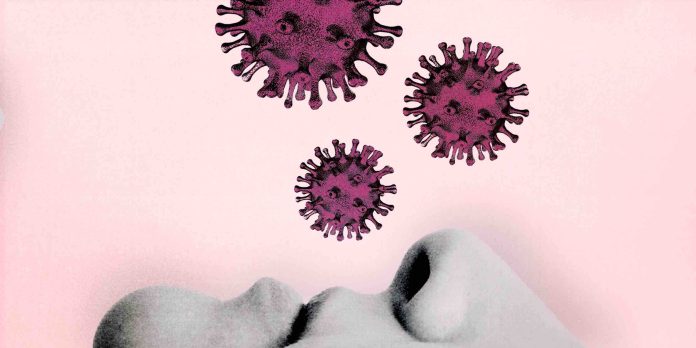Long-lasting effects of COVID-19 continue to impact individuals in various ways, with parosmia, a distorted sense of smell, emerging as a persistent challenge for some. A groundbreaking study, presented at the annual meeting of the Radiological Society of North America (RSNA), unveils a promising treatment that may bring olfactory relief to those experiencing post-COVID parosmia. Let’s delve into the details of this innovative procedure and the hope it holds for enhancing the quality of life for long COVID survivors.
Table of Contents
ToggleThe Parosmia Predicament:
Parosmia, characterized by the distortion of the sense of smell, has become a prevalent issue among individuals recovering from COVID-19. Research indicates that up to 60% of COVID-19 patients may experience parosmia, disrupting their ability to enjoy the aromas of daily life. While many recover over time, individuals with long COVID often grapple with lingering parosmia symptoms, impacting their appetite and overall well-being.
Unveiling the Treatment: CT-Guided Stellate Ganglion Block
In a pursuit to alleviate long COVID parosmia, researchers explored the potential benefits of a minimally invasive procedure known as CT-guided stellate ganglion block. The stellate ganglia, part of the autonomic nervous system, play a crucial role in regulating involuntary processes in the body. The research team hypothesized that by targeting these nerves with a stellate ganglion block, they could potentially restore the distorted sense of smell.
The Procedure:
The stellate ganglion block involves injecting anesthetic directly into the stellate ganglion on one side of the neck. Using CT guidance, the procedure is precise and takes less than 10 minutes, offering a beacon of hope for those resistant to pharmaceutical and topical therapies. The addition of a small dose of corticosteroid to the anesthetic aims to address potential nerve inflammation caused by the COVID virus.
Surprising Success and Patient Outcomes:
The initial results of the study are promising, with some patients experiencing almost immediate improvement and continued enhancement over the following weeks. Surprisingly, nearly 100% resolution of phantosmia, the perception of smells not present in the environment, was observed in some patients. Follow-up assessments revealed significant progressive improvement, reaching a mean of 49% at three months post-procedure among responsive patients.
The Road Ahead:
As the study unfolds, the stellate ganglion block emerges as a beacon of hope for those whose parosmia has resisted previous treatments. With no reported complications or adverse events, the injection stands out as a potentially transformative solution for this challenging condition. Further research and exploration are underway, paving the way for a brighter olfactory future for long COVID survivors.
In the realm of long COVID recovery, the pursuit of solutions for persistent symptoms is ongoing. The CT-guided stellate ganglion block offers a ray of hope for individuals grappling with post-COVID parosmia, showcasing the potential to restore the aromatic symphony of daily life. As research progresses, this innovative procedure may become a crucial turning point, providing relief and renewed olfactory joy to those on the path to recovery.








